Kip Lynch ’22
News Editor
The Trinity College administration shared the results of the 2019 Campus Climate Survey in a webinar hosted by David Andres ’04, Director of Analytics and Strategic Initiatives earlier this week.
The results, revealed Monday, suggest that Trinity consistently scored worse than other small colleges in the same peer group when it came to how members of the Trinity community experienced discrimination and harassment as well as how the Trinity community viewed the administration’s support for diversity and inclusion. Both President of the College Joanne Berger-Sweeney and Vice President for Diversity, Equity, and Inclusion Anita Davis noted that this survey was released and administered while the campus was experiencing social unrest around the Churchill Club.
In partnership with the Higher Education and Data Sharing Consortium (HEDS), the anonymous survey was sent out to the Trinity community in Apr. 2019. Davis outlined the parameters of the survey as a presentation of qualitative and quantitative data, benchmarks with other small institutions, and as a means of establishing a baseline.
While only 34% of undergraduate students responded, 63% of the faculty and 56% of the staff responded to the survey. Each group responded at a higher respective rate than the peer group median which was 20% for undergraduates, 47% for faculty, and 46% for staff. Women responded at a significantly higher rate than men, responding at a rate of 47% compared to 31% for men. No data was available for non-binary individuals. American Indian or Alaska Native responded at the lowest rate of 33% with only one respondent while white people had the second lowest response rate of 37%. Hispanics, African Americans, and Asians responded at the highest rates of 58%, 51%, and 48%, respectively.
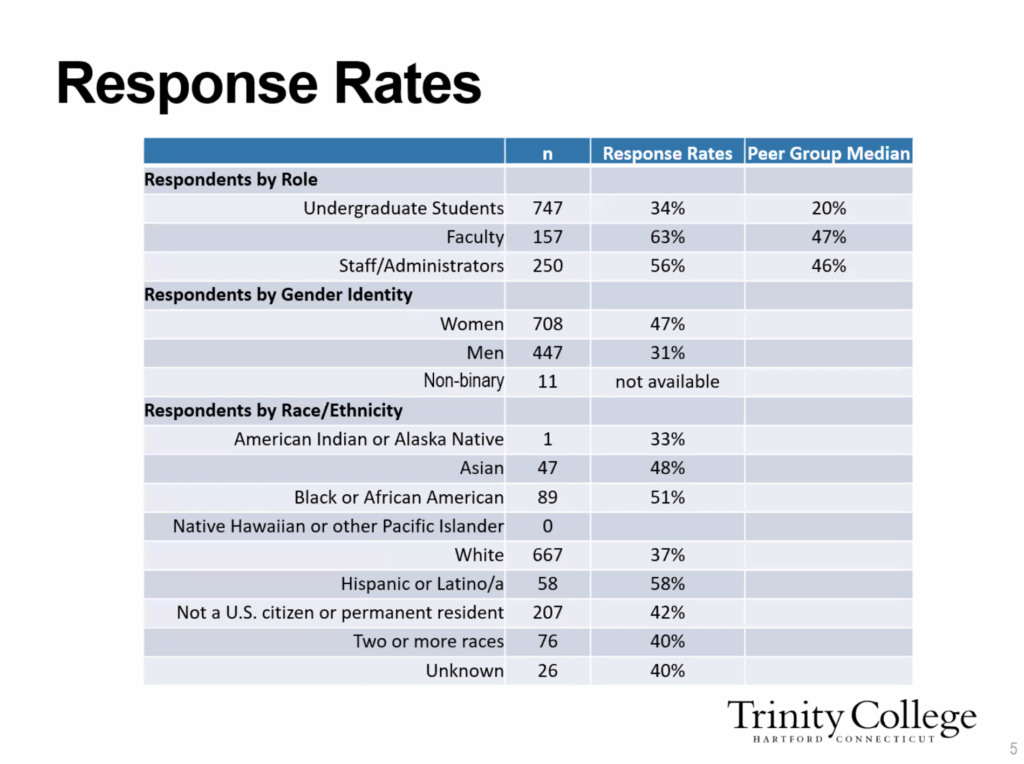
Overall, Trinity scored worse in comparison to other small colleges in four areas. Trinity received a score of 3/5 while its peer group averaged 3.5/5 when it came to satisfaction over the campus climate for diversity and inclusion. As for how the community perceived institutional support for diversity and inclusion, Trinity received a score of 3/5 compared to the peer group’s score of 3.2/5. Trinity received a score higher than its peers in both categories of Insensitive or Disparaging Remarks (-2.5 compared to the peer average of -2.1) and Discrimination or Harassment (-2.3 compared to the peer average of -2), indicating that negative experiences are slightly more prevalent in the Trinity community than among its peers.
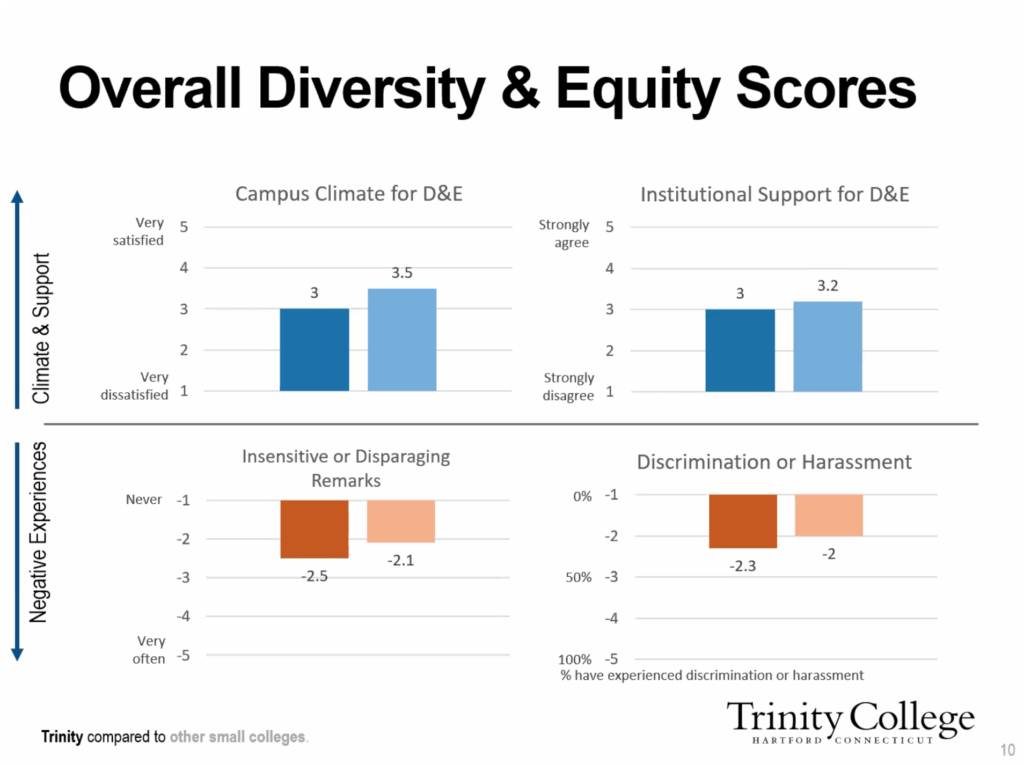
Experiences of discrimination or harassment varied from physical experience to religious background. 60-65% of respondents indicated that they were discriminated against or harassed because of their racial/ethnic identity while 10-15% indicated that they faced this discrimination or harassment very often. 70-75% of respondents indicated that they were discriminated against or harassed because of their physical appearance while 10% indicated that they faced this discrimination or harassment very often. The survey revealed how the source of discrimination or harassment often originated from one’s own group.
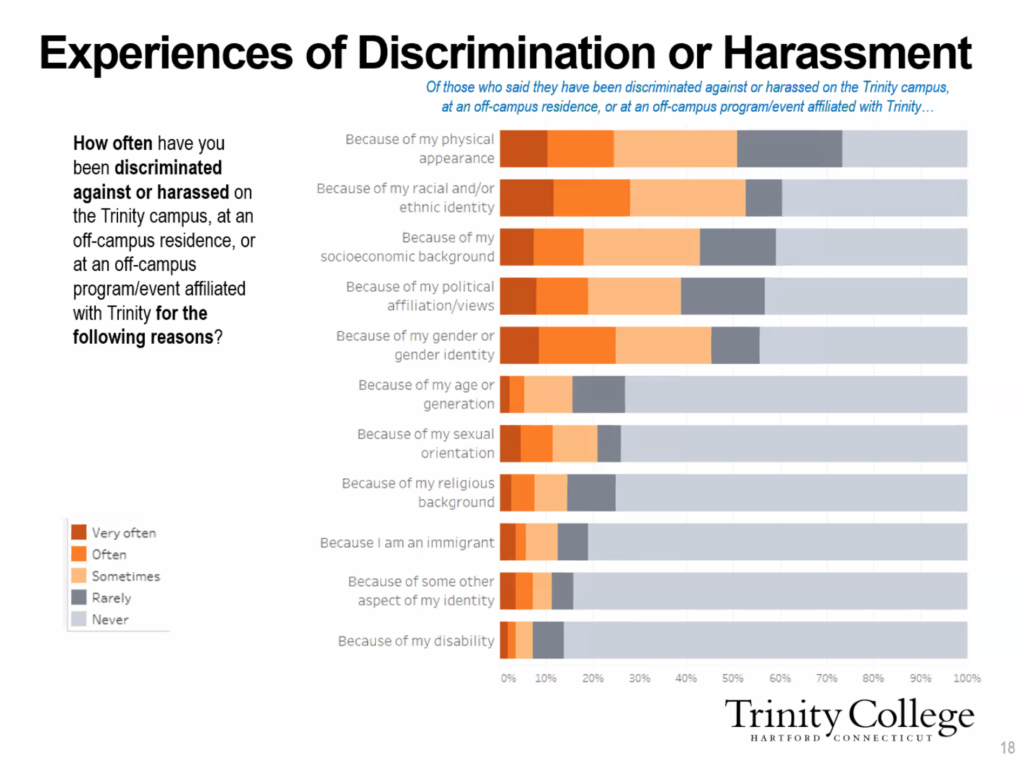
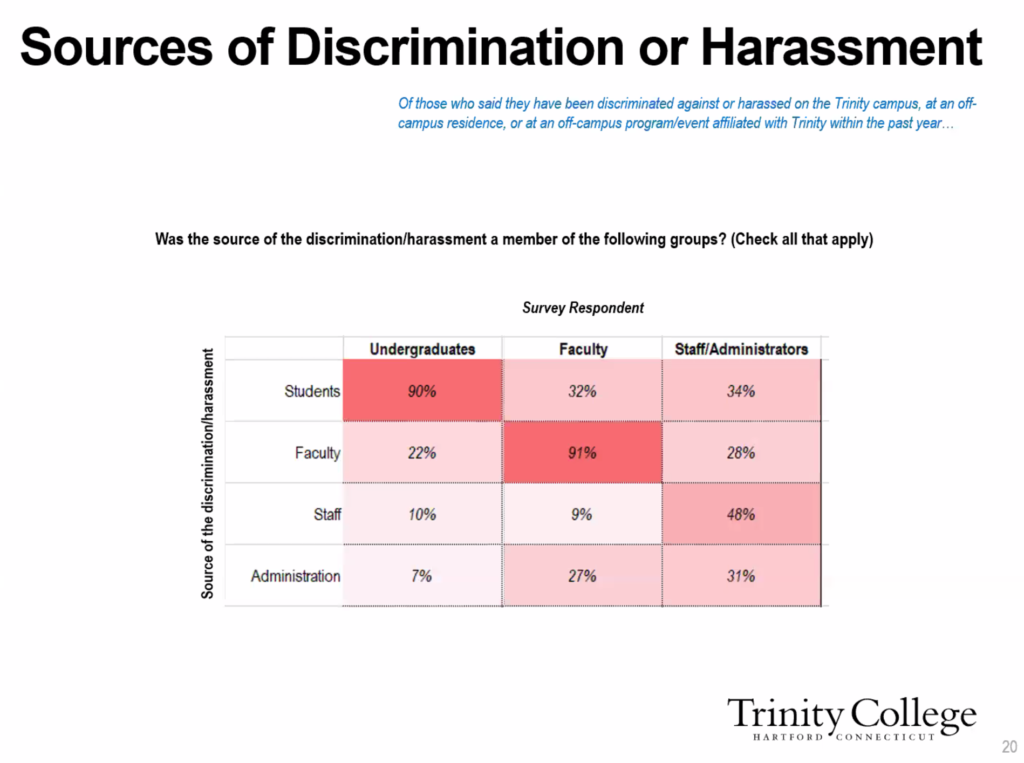
The 2019 Campus Climate Survey also revealed the College’s concern of retaining undergraduate students, faculty, and staff. Respondents that were faculty or staff indicated that they planned to leave Trinity at or over double the rate of undergraduate students with the highest group being faculty that are not white at over 15%. A further 20% of non-white faculty respondents indicated that they were seriously considering leaving Trinity. More than 50% of undergraduate students had also planned to, seriously considered, or often thought about leaving Trinity.
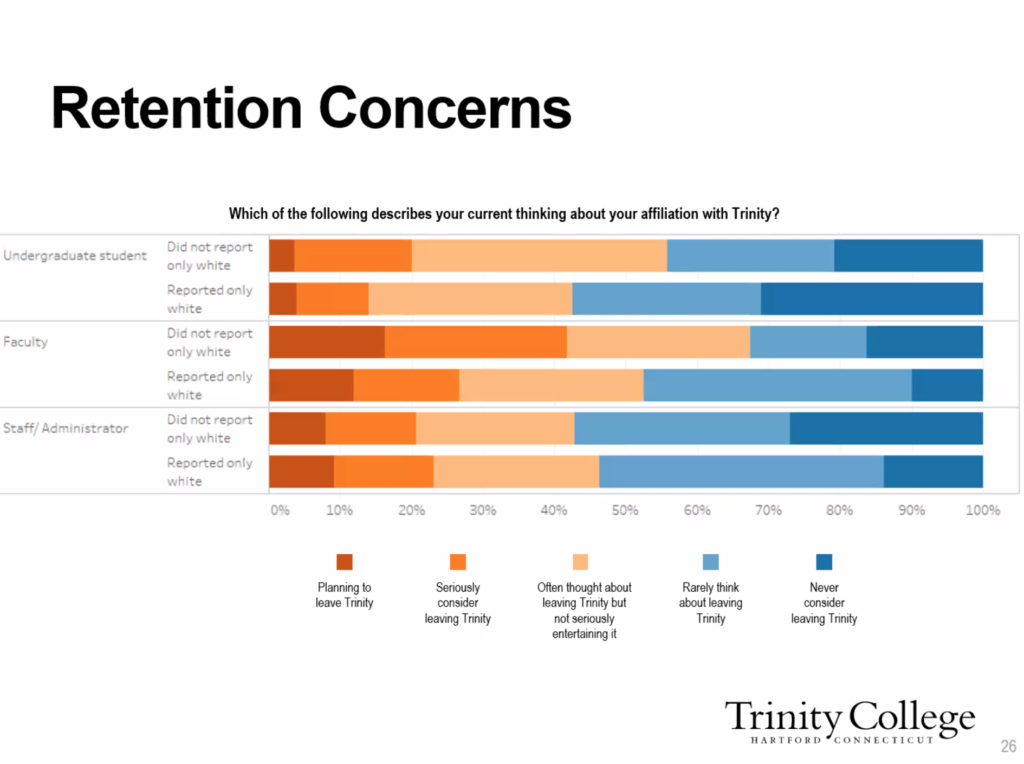




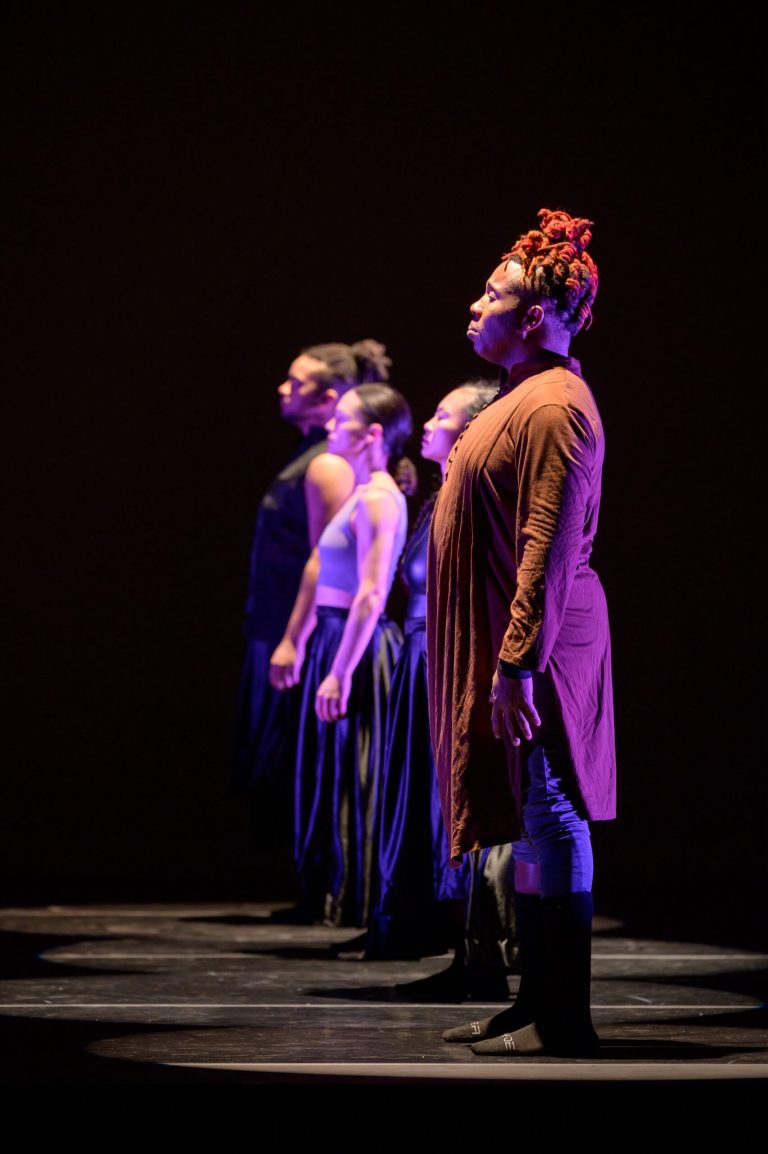


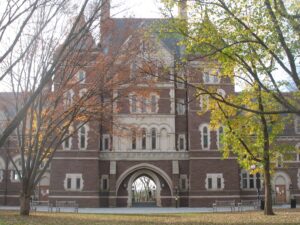
+ There are no comments
Add yours